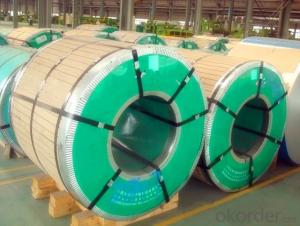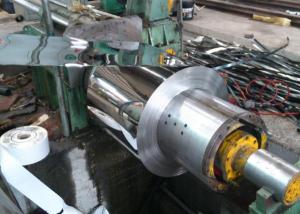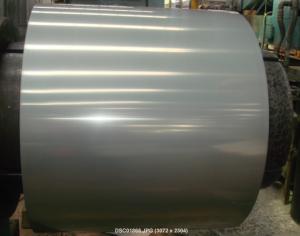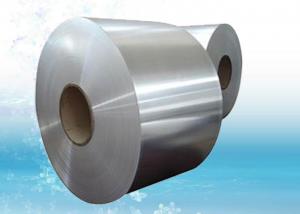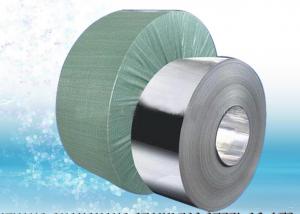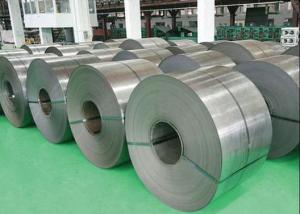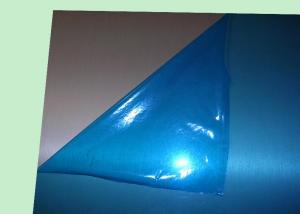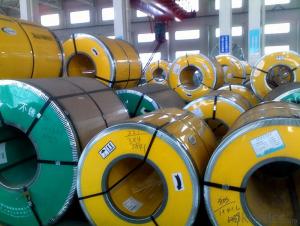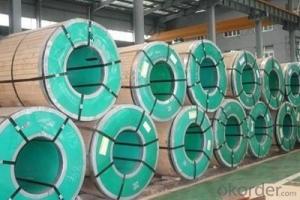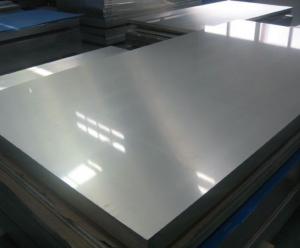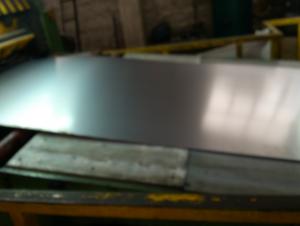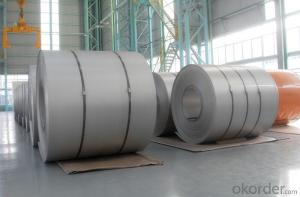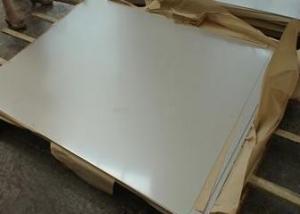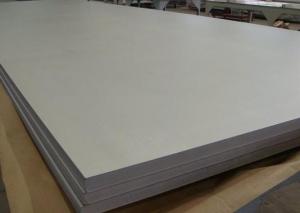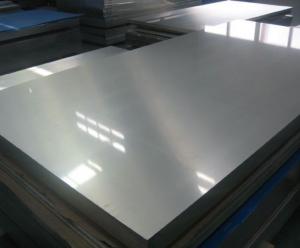Stainless Steel Coil 304 Cold Rolled 2B Narrow
- Loading Port:
- Ningbo
- Payment Terms:
- TT OR LC
- Min Order Qty:
- 100 m.t.
- Supply Capability:
- 20000 m.t./month
OKorder Service Pledge
Quality Product, Order Online Tracking, Timely Delivery
OKorder Financial Service
Credit Rating, Credit Services, Credit Purchasing
You Might Also Like
Cold Rolled Stainless Steel Coil 304 Grade Narrow/Wide 2B/BA Finish
Packaging Detail: standard export packing or as customer's requirements
Delivery Detail: 7-15 days after the order
Standard: | AISI,ASTM,BS,DIN,GB,JIS | Grade: | 304 | Thickness: | 0.3-3.0mm |
Place of Origin: | China Mainland | Brand Name: | CNBM | Model Number: | 304 |
Type: | Steel Coil | Technique: | Cold Rolled | Surface Treatment: | 2B, BA |
Application: | Medical instruments, building, chemical food industry agriculture | Width: | 500-2000mm | Length: | Coil |
finish: | 2B, BA | item: | 304 cold rolled stainless steel coil | density: | 7.93 |
- Q:Can 111 stainless steel strips be coated with anti-fingerprint coatings?
- Indeed, it is possible to apply anti-fingerprint coatings on a total of 111 stainless steel strips. These coatings are specifically crafted to minimize the appearance of fingerprints and smudges on stainless steel surfaces, resulting in simplified cleaning and maintenance procedures. It is feasible to utilize this coating on different stainless steel grades, including 111 stainless steel. However, it is crucial to seek guidance from a reputable coating supplier or manufacturer to confirm the compatibility of the chosen anti-fingerprint coating with 111 stainless steel, ensuring it fulfills the desired performance criteria.
- Q:Are stainless steel strips suitable for chemical pipes?
- Indeed, chemical pipes can be effectively made using stainless steel strips. Thanks to its remarkable resistance to corrosion, stainless steel proves to be an exceptional material for piping systems handling chemicals. It exhibits outstanding durability against a wide range of chemical substances, encompassing acids, alkalis, and solvents. The secret behind stainless steel's resistance to corrosion lies in the presence of chromium, which generates a protective oxide layer on the metal's surface, thus preventing further corrosion and guaranteeing the pipes' longevity. Furthermore, stainless steel is renowned for its superior strength and durability, enabling it to withstand the elevated pressures and temperatures typically associated with chemical processing. In conclusion, stainless steel strips are a dependable and fitting choice for chemical pipes.
- Q:What is the hardness of stainless steel band 3/4?
- 1/2 hardness range: HV250 degrees to HV2903/4 hardness range: HV310 to HV370(HV:, Vivtorinox hardness)
- Q:Can stainless steel strips be used in elevator components?
- Indeed, elevator components can make use of stainless steel strips. Stainless steel is widely preferred for its long-lasting nature, ability to resist corrosion, and pleasing aesthetics, making it an ideal choice for various applications. In the context of elevator components, stainless steel strips serve multiple purposes such as cladding, adding decorative finishes, and providing structural reinforcements. These strips find applications in elevator doors, panels, frames, handrails, and other critical parts that require strength, hygiene, and the ability to withstand wear and tear. Elevator designers and builders often prioritize stainless steel strips to guarantee both durability and an appealing look.
- Q:How do you clean and maintain stainless steel strips?
- To clean and maintain stainless steel strips, there are a few simple steps you can follow. 1. Start by removing any loose dirt or debris from the surface of the strips. You can do this by wiping them with a soft cloth or using a brush with soft bristles. 2. Next, prepare a cleaning solution. You can use mild dish soap or a stainless steel cleaner specifically designed for this purpose. Dilute the cleaner in warm water according to the instructions on the product. 3. Dip a soft cloth or sponge into the cleaning solution and gently scrub the stainless steel strips, following the grain of the metal. Avoid using abrasive materials or scrub brushes as they can scratch the surface. 4. Rinse the strips thoroughly with clean water to remove any residue from the cleaning solution. 5. Once rinsed, dry the stainless steel strips completely using a soft cloth or towel. This step is crucial to prevent water spots or stains from forming on the surface. 6. For routine maintenance, you can use a stainless steel polish or a microfiber cloth to restore the shine and remove any fingerprints or smudges. Remember to always test any cleaning product on a small, inconspicuous area of the strip before using it on the entire surface to ensure compatibility and avoid any potential damage. With regular cleaning and proper maintenance, your stainless steel strips will retain their luster and durability for a long time.
- Q:What is the typical thickness range of stainless steel strips?
- The typical thickness range of stainless steel strips can vary depending on the specific application and industry requirements. However, in general, stainless steel strips are available in thicknesses ranging from 0.1mm to 3mm. Thinner strips, such as those with a thickness below 0.5mm, are commonly used in industries like electronics, automotive, and medical devices. On the other hand, thicker strips, typically in the range of 1mm to 3mm, are utilized in heavy-duty applications like construction, oil and gas, and industrial machinery. It is important to note that these thickness ranges are not exhaustive and can be customized based on individual project needs.
- Q:Are 111 stainless steel strips suitable for outdoor applications?
- Yes, 111 stainless steel strips are suitable for outdoor applications.
- Q:What are the common uses of stainless steel strips in the petrochemical industry?
- Stainless steel strips are widely used in the petrochemical industry for various applications due to their exceptional qualities and characteristics. Some of the common uses of stainless steel strips in this industry are: 1. Heat exchangers: Stainless steel strips are often used to manufacture heat exchangers, which play a crucial role in petrochemical processes. The high corrosion resistance of stainless steel ensures the longevity and reliability of the heat exchangers, even in harsh operating conditions. 2. Storage tanks and vessels: Petrochemical plants require storage tanks and vessels to store various chemicals and substances. Stainless steel strips are commonly used to construct these tanks due to their excellent resistance to corrosion, chemical attacks, and high temperatures. 3. Piping systems: Stainless steel strips are preferred for fabricating piping systems in the petrochemical industry. These strips offer high strength, corrosion resistance, and the ability to withstand extreme temperatures, making them suitable for transporting corrosive and high-pressure fluids. 4. Reactors and pressure vessels: In the petrochemical industry, reactors and pressure vessels are used for various chemical reactions and processes. Stainless steel strips are extensively utilized in the construction of these critical equipment due to their durability, resistance to pitting and crevice corrosion, and ability to handle high pressures. 5. Flanges and fittings: Stainless steel strips are commonly employed in the production of flanges and fittings used in petrochemical plants. These components require materials that can withstand high-pressure environments and resist corrosion, making stainless steel strips an ideal choice. 6. Instrumentation and control systems: Stainless steel strips are also used in the manufacturing of instrumentation and control systems in the petrochemical industry. These strips provide excellent dimensional stability, resistance to temperature fluctuations, and resistance to chemical exposure, ensuring the accuracy and reliability of the control systems. Overall, stainless steel strips find extensive use in the petrochemical industry due to their superior corrosion resistance, high strength, heat resistance, and durability. These qualities make them indispensable for critical applications where reliability and longevity are crucial factors.
- Q:What are the common uses of stainless steel strips in the chemical manufacturing process?
- Due to their numerous advantageous properties, stainless steel strips are commonly employed in the chemical manufacturing process. One significant application of these strips is in the construction of storage tanks and vessels, where their excellent corrosion resistance is essential for handling and storing highly corrosive chemicals. Additionally, the high strength and durability of stainless steel strips enable them to withstand the harsh conditions often found in chemical manufacturing facilities. Another prevalent use of stainless steel strips in chemical manufacturing is in the production of heat exchangers. These play a critical role in maintaining precise temperature control during chemical reactions and processes. Stainless steel strips are preferred for this purpose due to their exceptional thermal conductivity and ability to resist oxidation at high temperatures. These properties ensure efficient heat transfer and prolong the operational lifespan of the heat exchangers, ultimately contributing to the overall productivity of the chemical manufacturing process. Moreover, stainless steel strips are utilized in the fabrication of various piping systems within chemical plants. These strips are used to manufacture pipes, fittings, and valves that transport and control the flow of chemicals throughout the manufacturing process. The corrosion resistance of stainless steel, which protects against both the chemicals being transported and external factors like moisture and humidity, makes it an ideal material choice for these critical components. Furthermore, stainless steel's non-porous nature and ease of cleaning make it suitable for industries where maintaining a high level of cleanliness and purity is crucial. Additionally, stainless steel strips find application in the production of filtration systems used in chemical manufacturing. These systems are responsible for removing impurities and contaminants from chemical solutions, ensuring the final product meets required specifications. Stainless steel strips, with their excellent chemical resistance and mechanical strength, are often incorporated into filter screens and membranes, providing reliable and efficient filtration performance. In conclusion, stainless steel strips are extensively utilized in the chemical manufacturing process due to their exceptional corrosion resistance, durability, thermal conductivity, and hygienic properties. Whether in storage tanks, heat exchangers, piping systems, or filtration systems, stainless steel strips contribute to the efficiency, safety, and quality of chemical production.
- Q:Can stainless steel strips be used in high-pressure applications?
- Stainless steel strips have the capability to be employed in high-pressure scenarios. The reputation of stainless steel resides in its remarkable resistance to corrosion and its strength, rendering it a fitting material for a multitude of industrial uses, particularly in environments with high pressures. In the creation of pressure vessels, pipes, valves, and other exposed components, stainless steel strips are frequently utilized. The material's capacity to endure heightened pressures, in conjunction with its resistance to corrosion and oxidation, establishes stainless steel strips as an unfailing choice for high-pressure applications. Moreover, the heat resistance and durability of stainless steel further enhance its adaptability for deployment in such challenging conditions.
1. Manufacturer Overview |
|
|---|---|
| Location | |
| Year Established | |
| Annual Output Value | |
| Main Markets | |
| Company Certifications | |
2. Manufacturer Certificates |
|
|---|---|
| a) Certification Name | |
| Range | |
| Reference | |
| Validity Period | |
3. Manufacturer Capability |
|
|---|---|
| a)Trade Capacity | |
| Nearest Port | |
| Export Percentage | |
| No.of Employees in Trade Department | |
| Language Spoken: | |
| b)Factory Information | |
| Factory Size: | |
| No. of Production Lines | |
| Contract Manufacturing | |
| Product Price Range | |
Send your message to us
Stainless Steel Coil 304 Cold Rolled 2B Narrow
- Loading Port:
- Ningbo
- Payment Terms:
- TT OR LC
- Min Order Qty:
- 100 m.t.
- Supply Capability:
- 20000 m.t./month
OKorder Service Pledge
Quality Product, Order Online Tracking, Timely Delivery
OKorder Financial Service
Credit Rating, Credit Services, Credit Purchasing
Similar products
New products
Hot products
Related keywords
